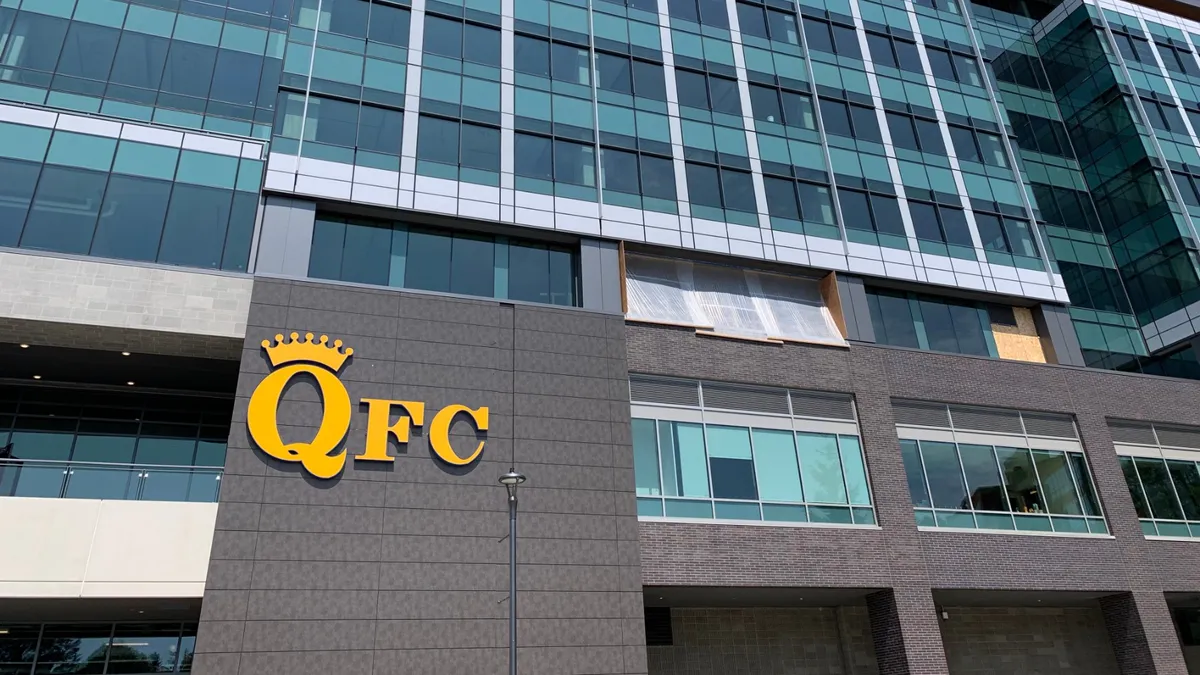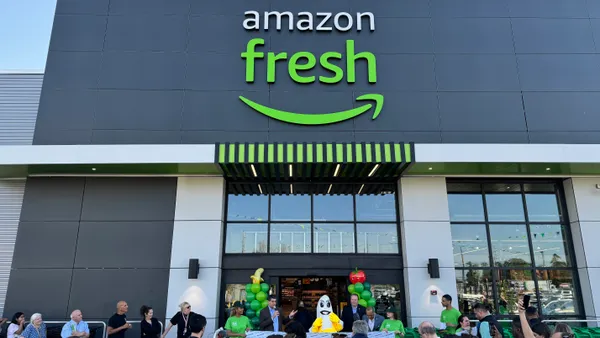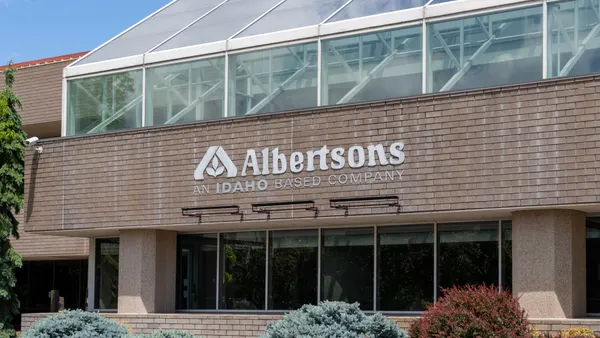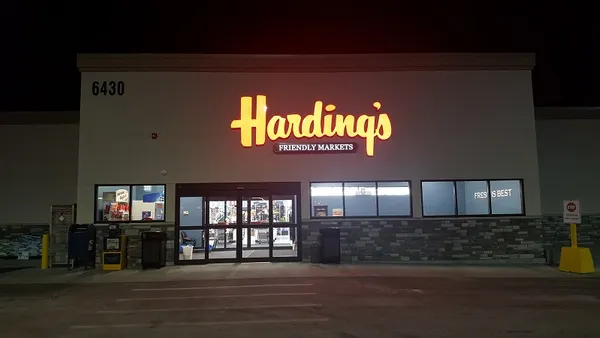Dive Brief:
- Kroger plans to close a pair of QFC stores in Seattle on April 24 because of the city's new hazard pay ordinance requiring grocery stores to provide $4 in extra hourly pay to workers as the coronavirus pandemic continues, the company announced on Tuesday.
- The company described the stores slated for closure at 416 15th Ave. E. and 8400 35th Ave. NE as “underperforming,” but indicated the decision to shutter them was accelerated by the hazard pay measure, which the grocer claims makes it “impossible to operate a financially sustainable business.”
- The move follows Kroger's recent decision to shutter two stores in Long Beach, California — also in response to a hazard pay mandate in that city.
Dive Insight:
Kroger’s decision to close two QFC stores in response to Seattle’s hazard pay measure, which went into effect on Feb. 3, further inflames tensions that had been simmering since the retailer dropped its voluntary hero pay program last spring.
The company’s response follows its decision earlier in February to close two grocery stores in Long Beach, California, after lawmakers in that city passed a $4-per-hour hazard pay ordinance that impacted supermarkets. Other cities, including Oakland, California, and Los Angeles, along with a number of states, have also taken steps to give grocery workers hazard pay.
In a statement, QFC took issue with the Seattle City Council for requiring grocers to pay workers extra without raising compensation for municipal frontline workers, who it said “are serving with the same dignity and determination as our own associates.” Pointing to the “razor-thin profit margins” grocery stores generate, the grocer said the added expenses imposed on it by the pay mandate squeezed the stores to the point that continuing to operate them was not an option.
Labor costs at QFC stores amount to 13% of total sales, and the average profit for a QFC store is 2%, the company said in a fact sheet. Seattle's hazard pay mandate pushes up its costs by 22%, which would wipe out the average profit for its stores, according to the company.
“Communities must take the time to do research and understand potential impacts before rushing to a decision that could do far more harm than good,” QFC said.
The grocer said it would work with workers affected by the closures to “help them through this transition,” but did not offer details beyond saying that it would honor contractual obligations and consider transfer requests.
Like other grocers, Kroger has reported strong financial results during the pandemic. Although the company’s overall growth slowed in its most recent quarter, Kroger still posted a nearly 11% increase in same-store sales and an operating profit of $792 million during the period.
The United Food and Commercial Workers International Union (UFCW) seized on Kroger’s assertion that it could not financially justify the extra pay in a statement condemning the closures.
“Kroger’s action today not only threatens these workers, but it also threatens the local food supply. Instead of doing what is right, protecting the community and providing the hazard pay for these essential grocery workers, Kroger is once again trying to intimidate local and national elected leaders. It will not work,” UFCW International President Marc Perrone said in the statement.
UFCW Local 21, which represents grocery workers in Seattle, called the closures “a transparent attempt to intimidate other local governments from passing ordinances that would provide hazard pay to front line grocery store workers,” and said it would not cow to what it termed “corporate bullying.”
Kroger’s decision to close the stores also provoked criticism from Seattle officials. Councilmember Teresa Mosqueda, who chairs the city council’s Finance and Housing Committee, called the move “harmful to our public health and retaliatory.” Meanwhile, a spokesperson for Mayor Jenny Durkan said the company has been profitable during the pandemic because of the work performed by frontline workers and was wrong to blame the closure “on the need to pay the very workers who brought them these huge revenues," KING5 TV reported.
Kroger’s move stands in contrast to the decision by PCC Community Markets, a 15-store cooperative that operates in the Seattle area, to voluntarily provide an extra $4 in hourly pay to workers in the seven stores it operates outside the city in addition to raising pay for workers in Seattle. The decision was a shift for PCC, which originally urged the mayor to either not sign the hazard pay measure or exempt smaller grocers from its requirements, arguing that the law would stretch it financially.
Trader Joe’s also recently said it would provide extra pay to all frontline workers because of the pandemic. The grocer doubled its “thank you” wage to $4 per hour across its store fleet, but said it would only go beyond that in areas where it was forced by law to do so.
However, Trader Joe's told workers it would cancel their mid-year raises as a result of its decision to add hazard pay and said it would be forced to take unspecified "action steps" in cases where it was compelled to provide workers with additional hazard pay, The Seattle Times reported.














